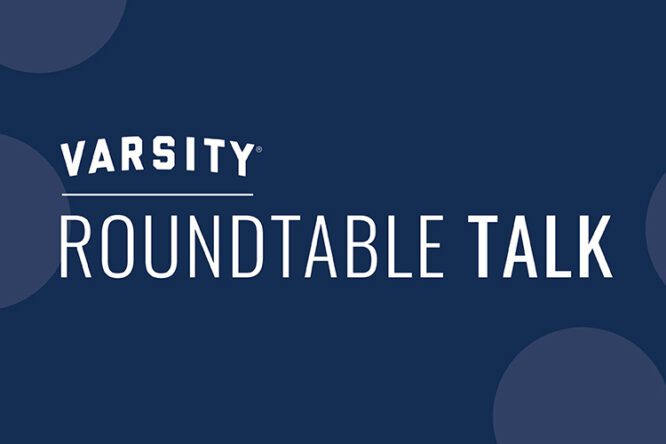Dr. Linda Fried is a world-renowned geriatrician, public health expert, and Dean of Columbia University’s Mailman School of Public Health. She was also a guest on Varsity’s podcast, Roundtable Talk. A pioneer in the science of healthy aging and frailty, Dr. Fried has dedicated her career to understanding how we can build systems and communities that support longer, healthier, and more purposeful lives.
On the episode, Dr. Fried explored the medical realities of frailty, why physical activity is the best prevention strategy, and how public health systems must evolve to meet the needs of an aging population.
The following are some fresh perspectives from the conversation. Check out the full episode here.
HOW DO YOU DEFINE FRAILTY, AND HOW DOES IT DIFFER FROM GENERAL AGING OR DISABILITY?
So what I learned both as a clinician and as a scientist is that there is a clinical and medical condition, which we call frailty, which generally starts with a decline in muscle mass and strength. Over time, what we see is a particular presentation that emerges with loss of muscle, loss of strength, loss of energy, slowing down physically, and in the later stages, unintentional weight loss. When you start seeing a critical mass of them, then you’re seeing somebody who has emerged with the condition of frailty.
HOW EARLY IN LIFE SHOULD WE BE THINKING ABOUT FRAILTY PREVENTION?
The most important thing to do is to make physical activity part of your life and find ways to enjoy it. In the second half of life, we start losing muscle mass, so it’s really important to maintain your strength and to do resistance exercises with some weightlifting. Not a lot. It doesn’t have to be a lot. Three times a week for 20 minutes or so.
CAN FRAILTY BE REVERSED? OR IS IT PRIMARILY ABOUT MANAGING DECLINE?
Until it’s very severe, it’s potentially reversible. But, of course, either preventing it in the first place or slowing down its development through exercise in particular and staying active and engaged in things you love is important.
YOU’VE WRITTEN ABOUT A “THIRD AGE,” A PERIOD OF PURPOSE AND CONTRIBUTION LATER IN LIFE. WHAT DOES THAT MEAN?
It’s been very clear to me that many people retire with a goal of making a difference. We have this gift of an extra 30 years of life that we never had. People want roles that matter, they’re not necessarily and often not full-time roles. But they want to contribute in a way that has significance.



